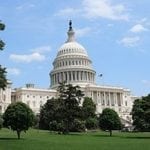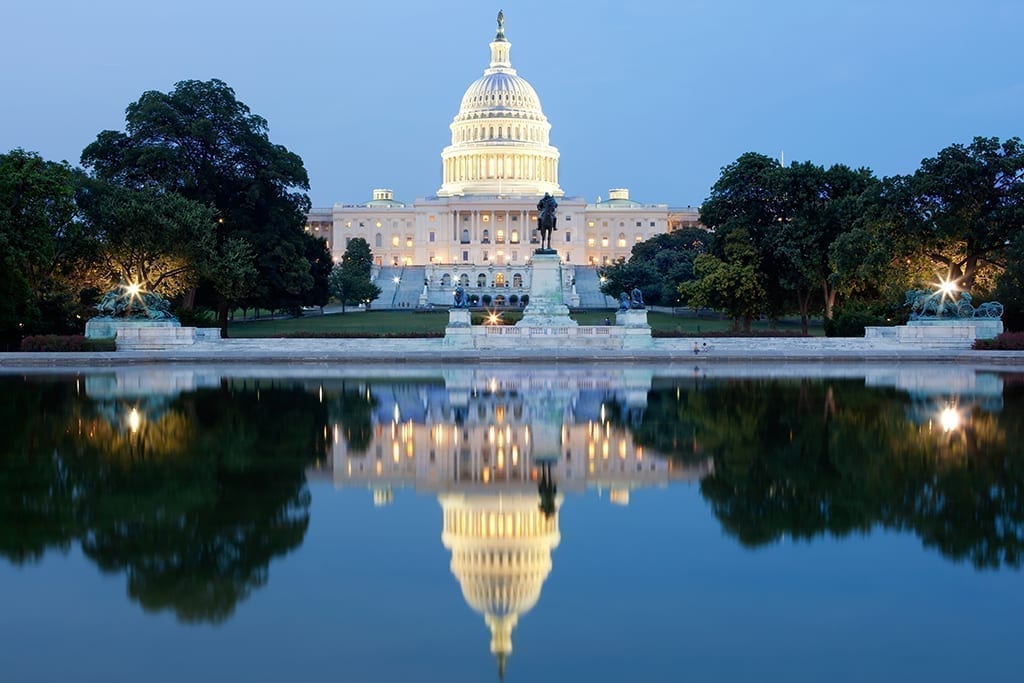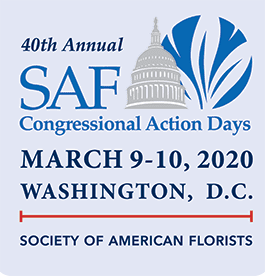 When President Trump announced in September of last year that he would end the Deferred Action for Childhood Arrivals (DACA) in March of 2018, he set in motion a debate on immigration policy that is reaching a crescendo.
When President Trump announced in September of last year that he would end the Deferred Action for Childhood Arrivals (DACA) in March of 2018, he set in motion a debate on immigration policy that is reaching a crescendo.
As noted in the January 24, 2018 Week In Review, the federal government shut down for three days when Senate Democrats opposed funding bill because it did not contain language protecting DACA.
After Senate Majority Leader Mitch McConnell (R-KY) promised that he would allow open debate and votes on the issue once the government was opened, Democrats supported the measure and the government was again funded.
As he pledged, Senate Leader McConnell initiated debate on DACA and immigration this week. He said he would like to complete consideration of the issue by today and if the Senate did not pass immigration legislation this week, it is unlikely there would be another opportunity to do so.
The Senate debate on the issue was lively. Four legislative proposals were been offered, debated and voted upon. Only a measure that would be able to obtain the support of 60 or more senators could be approved.
The Senate rejected all four proposals including a bipartisan bill crafted by several senators that would grant legal status to 1.8 million immigrants to protect those under DACA. While it would authorize $25 billion for southern border security construction projects, it does so over next decade beginning in 2021, not immediately, as President Trump wants.
The bill also would have reduced family-based immigration programs (chain migration), but not end it as the president is seeking and would not have ended a diversity visa lottery program that he wants eliminated.
The White House issued statements that President Trump would veto any legislation, including the bipartisan measure above, which does not meet all four of the immigration principles he had outlined –
- Funding to construct a border wall
- DACA relief and a path to citizenship for 1.8 million “Dreamers” who are protected from deportation under DACA
- Cutting family-based immigration, also known as “chain migration”
- Eliminating the diversity lottery
President Trump urged senators to support a measure proposed by Sen. Charles Grassley (R-IA) that would provide $25 billion to go toward border security, create a skills-based visa program to replace the diversity lottery system, and end “chain migration,” in return for a pathway to citizenship for 1.8 million undocumented immigrants, including DACA recipients.
That bill also failed.
On the other side of the Capitol, House Speaker Paul Ryan (R-WI) announced that he would like to pass legislation replacing DACA (DACA is an executive action that many contend is unconstitutional that should be addressed through legislation) by the end of March.
Most House Republicans, including some in leadership, support H.R. 4760, the Securing America’s Future Act, introduced by House Judiciary Chairman Bob Goodlatte (R-VA).
H.R. 4760 includes aggressive enforcement measures such as mandating that employers use E-Verify in hiring (SAF has long opposed mandatory E-Verify without the creation of a program to provide an adequate and reliable guestworker program), authorizing the construction of a border wall, and authorizes an additional 5,000 border patrol agents.
The bill creates a new agricultural worker program that will replace the existing H-2A program. Many agricultural groups have serious concerns with the proposed new program because it requires existing undocumented workers return home, apply for a worker visa, and only then be allowed to enter into the US. The guest workers under the new program would have to state they have no long term intention of settling permanently in the US.
It also addresses DACA by allowing those covered by the policy to receive a 3-year renewable legal status, unless they are identified as gang members, individuals who have criminal convictions, or have convictions in juvenile court for serious crimes. Rep. Goodlatte stressed that “there is no new or special path to citizenship for these individuals” in the bill.
It is unclear when, or if, a solution will be approved.






